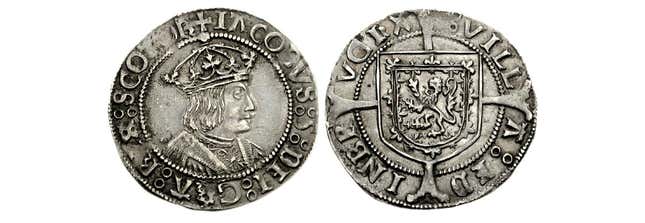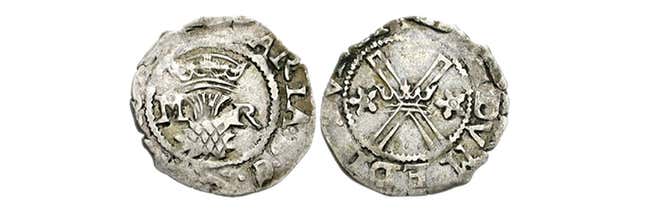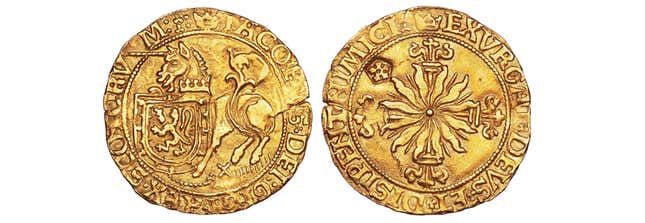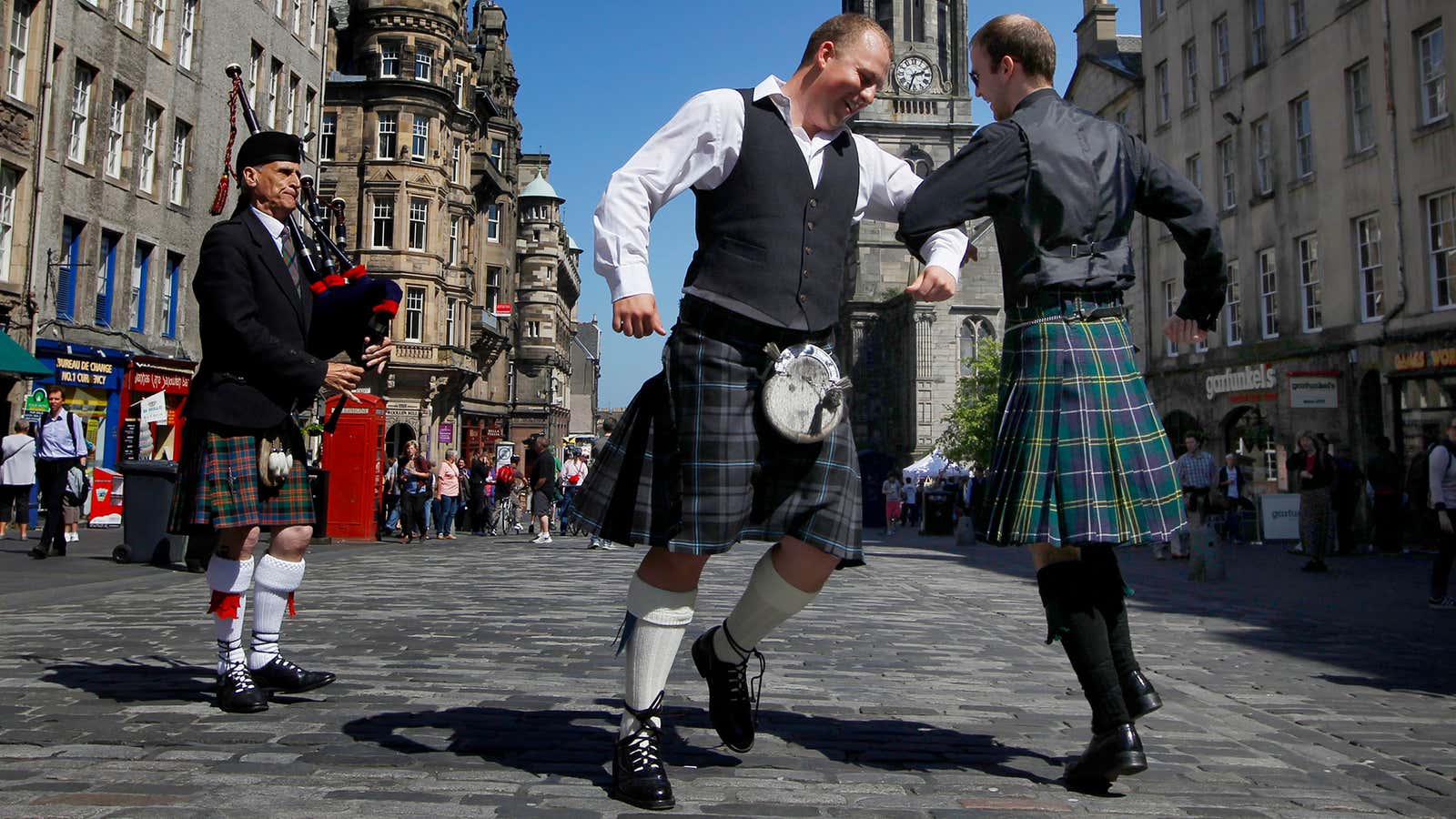One year from now, Scotland will hold a referendum on whether to remain a part of the UK. The countdown is being marked by a welter of polls and an avalanche of commentary on what’s at stake.
One of the biggest unanswered questions facing an independent Scotland is what currency it would use. The Scottish government leader, Alex Salmond, favors keeping the British pound if voters back independence. But a new report from a prominent think tank paints a grim picture of sovereign Scotland in a “sterling union,” which would result in soaring borrowing costs and severe austerity. The researchers suggest the country would benefit more from an independent currency, which they dub the “Scots pound.”
There are Egyptian pounds, Syrian pounds and, until the euro, Irish and Cypriot pounds. British overseas territories like the Falkland Islands and Gibraltar have also adopted variations of the pound. But Scotland boasts a particularly rich history of coinage pre-dating its union with England in 1707. If it had to create a new currency, it could get more creative.

The groat was one of the more common denominations, first appearing in the 1300s and many centuries thereafter. This also name-checks John O’Groats, one of the most northerly cities on the Scottish mainland and a popular tourist destination.
Other coins that might inform a new Scottish currency include the rider and thistle, which evoke rugged highlanders and the country’s national symbol, respectively.

Other ancient coins include the plack, pistole, bawbee and testoon. Oh, and the unicorn (1460-1539). (But who wants their national economy represented by something as fanciful as that?)

In keeping with Venezuela’s bolivar and Panama’s balboa, the country might also consider employing the name of an independence hero, such as the wallace or bruce. A self-reflexive name, like the caledonia, alba or scot (abbreviated, naturally, to scottie) would accomplish something similar to the franc, euro and afghani.
Or Scotland could forget the past and embrace the future by adopting the bitcoin.
If you have any better ideas, let us know by annotating this story, tweeting us @qz or emailing [email protected]. Who knows, for a country still divided on its upcoming vote for independence next year, this could tip the balance—in either direction.
